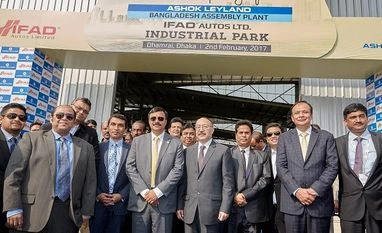India wants globalisation based on equality in post-Covid era: Foreign Secy
Shringla said the pandemic has disrupted an international order or system that has been in existence for much of people's working lives
)
The recent past has seen this system revisiting ideas about sovereignty and devoting much attention to concepts such as international law, soft laws and norms, he said.
India would like a new form of globalisation, based on fairness, equality and humanity in the post-COVID world, Foreign Secretary Harsh Vardhan Shringla on Monday said and asserted that multilateralism must be reformed to accommodate current trends.
In his virtual keynote address at the inaugural session of the course on 'India and the reshaping of the world order' at St. Stephen's College's, Shringla said the pandemic has disrupted an international order or system that has been in existence for much of people's working lives.
"We are a collection of nation states organised around the concept of sovereignty and on the general principles that disputes should be resolved peacefully and that one should not normally interfere in the affairs of other states. It is what is often called a Westphalian system," he said.
The recent past has seen this system revisiting ideas about sovereignty and devoting much attention to concepts such as international law, soft laws and norms, he said.
"We also believe that the content of globalisation needs to change. We believe that multilateralism must be reformed to accommodate current trends and realities," Shringla said.
Also Read
"Our prime minister has spoken of a human-centric globalisation that transcends the purely economic agenda that has defined globalisation so far. We would like a new form of globalisation, based on fairness, equality and humanity in the post-COVID world," he said.
Periods of growth follow all crises and like the crises preceding it, the current crisis is also expected to be followed by a similar trend, Shringla said.
"One of our priorities, in this context, is to make India, in the words of the prime minister, the 'nerve centre of global supply chains'. This is also in line with his vision of 'Aatmanirbhar Bharat'. We are actively engaged in promoting India as an alternative manufacturing hub and an innovation destination," he said.
"All crises alter geopolitics. Some things will, however, not change. The fundamental spatial orientation of our policy remains Neighbourhood First," Shringla said.
Initiatives such as BIMSTEC link Neighbourhood First to another fundamental pillar of our foreign policy, viz., Act East, he said.
"We have a growing dialogue with ASEAN through multiple channels. Think West - our outreach to the Gulf and West Asian countries - has become an increasingly important pillar of our foreign policy," he said.
India has also outlined our vision for engagement in the Indo-Pacific region based on a free, open and inclusive order, and on respect for sovereignty and territorial integrity, peaceful resolution of disputes, and international rules and laws, he asserted.
Asserting that India believes in "vasudaiva kutumbakam" and in the principle of "nishkama karma", he said this is why "we tried to act as a 'pharmacy of the world' during the current crisis and provided medications and essential medical supplies to more than 150 countries internationally.
(Only the headline and picture of this report may have been reworked by the Business Standard staff; the rest of the content is auto-generated from a syndicated feed.)
More From This Section
Don't miss the most important news and views of the day. Get them on our Telegram channel
First Published: Sep 22 2020 | 12:05 AM IST


